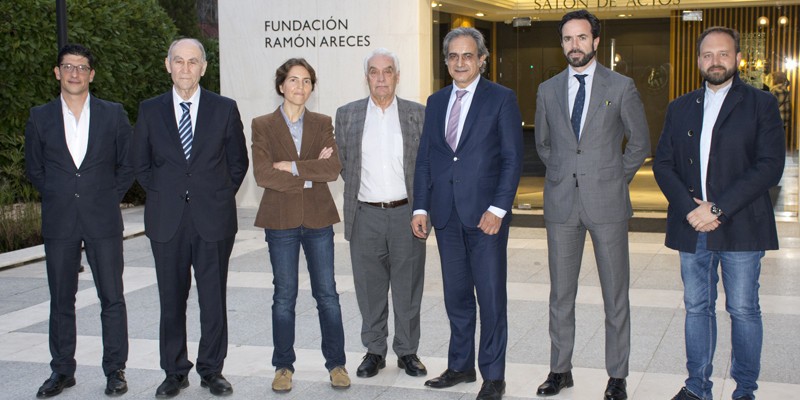Vocational training is crucial for business innovation

Luis Fernando Álvarez-Gascón, President of the Innovating Companies Forum (Foro de Empresas Innovadoras: FEI) and General Manager of GMV’s Secure e-solutions sector has moderated the panel discussion “The Role of Vocational and Technical Training in Business Innovation”, which was organized by Fundación Ramón Areces and Foro de Empresas Innovadoras. Company competitiveness and the changes provoked by ongoing digitization mean innovation is playing an increasingly crucial role on the world stage. Spain in particular is lagging behind the European Union average on this score; the percentage of youngsters taking vocational training courses and the appreciation of these courses’ importance are both clearly improvable. We now face the double but interrelated challenge of improving the social esteem of these courses and guiding our youngsters towards them. A telling fact here is that university graduate unemployment is about 34% while vocational training unemployment is only 7.4%.
Some of these matters were addressed in the panel discussion involving José Molero, Director of the Cátedra extraordinaria CESIN UCM- FEI; Segundo Vallejo Abad, Director of TALGO; Pablo Santamaría Lacuesta, from the Technical Directorate of the meat producer Central de Carnes Premium, Grupo Norteños; Berta Sánchez García from Red VETMAD2B; Alejandro Blanco Urízar, President of AMETIC’s Digital Talent Development Committee and Ernesto Lago, Maintenance Manager of Grupo COSENTINO. The closing address was given by Clara Sanz López, Secretary General of Vocational Training of the Ministry of Education and Vocational Training.
In his speech Luis Fernando Álvarez-Gascón argued that “innovation is a key feature for looking ahead with any confidence. There is also, however, a need for the political will to ensure its full impact on society. Innovation depends not only on increased R&D investment from institutions and firms but also a complete rethink of other essential aspects. The aspect most overlooked here is knowledge management and talent”. Back in the nineties, “in exporting economies like Germany and Japan, vocational training was already one of their strong suits in comparison to other countries. Talent-nurturing countries tend to clock up a better innovation performance. So there are more than enough scientific reasons for paying special attention to this innovation-vocational training twosome”.
When it came to his turn to speak, José Molero, Chair Director, argued that, although vocational training is more highly appraised nowadays by society and politicians, the number of youngsters signing up for these courses in Spain is still well below half the European average, 12% in Spain against 33% in the rest of the EC countries. The main reasons for this backwardness are cultural. General secondary education was tacitly considered to be better than vocational training. More recent studies, however, show that this picture is changing in Spain. Vocational training is now coming into its own as an essential enabler of company innovation, with a special nod towards dual vocational training carried out alternately in schools and companies.
The conclusion drawn from the various contributions was that Spain is not managing talent efficiently enough. Witness Spain’s unemployment rate. Speakers also stressed the big challenges to be faced in a world where 90% of the new professions need digital skills while hardly 34% of Spain’s youngsters are trained up in these skills. Spain’s education system is therefore duty bound to make urgent progress on this score in the interests of ongoing economic growth and society’s wellbeing.